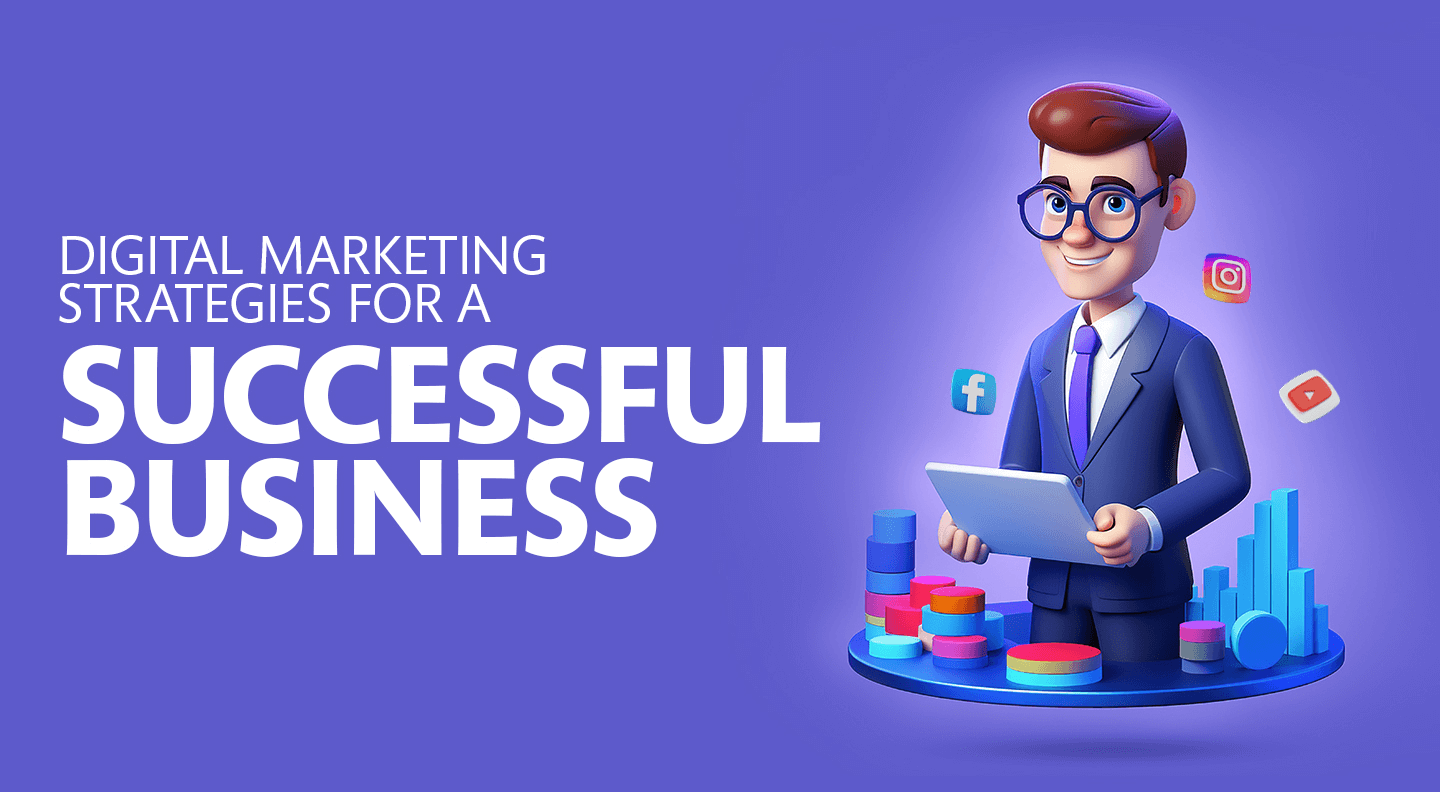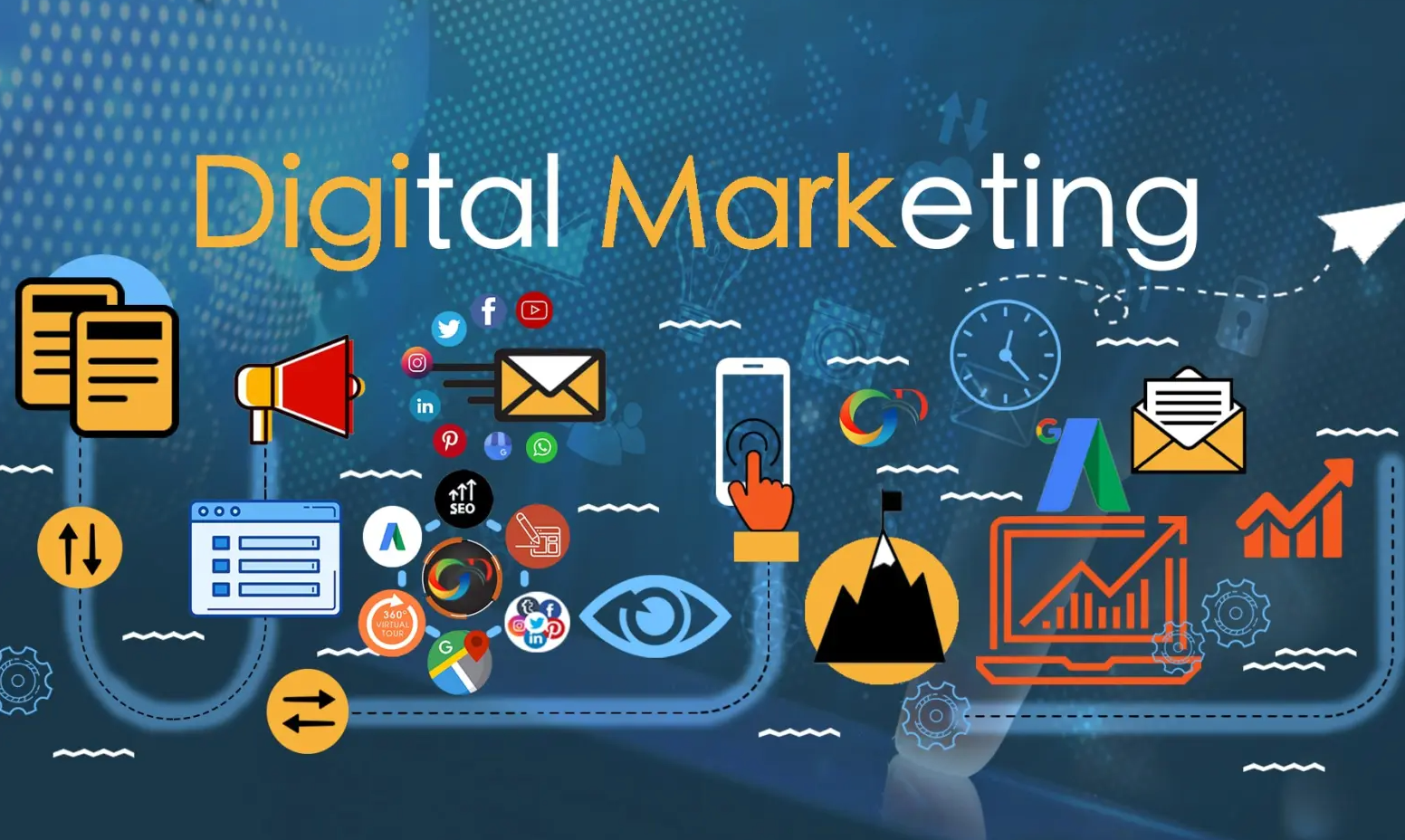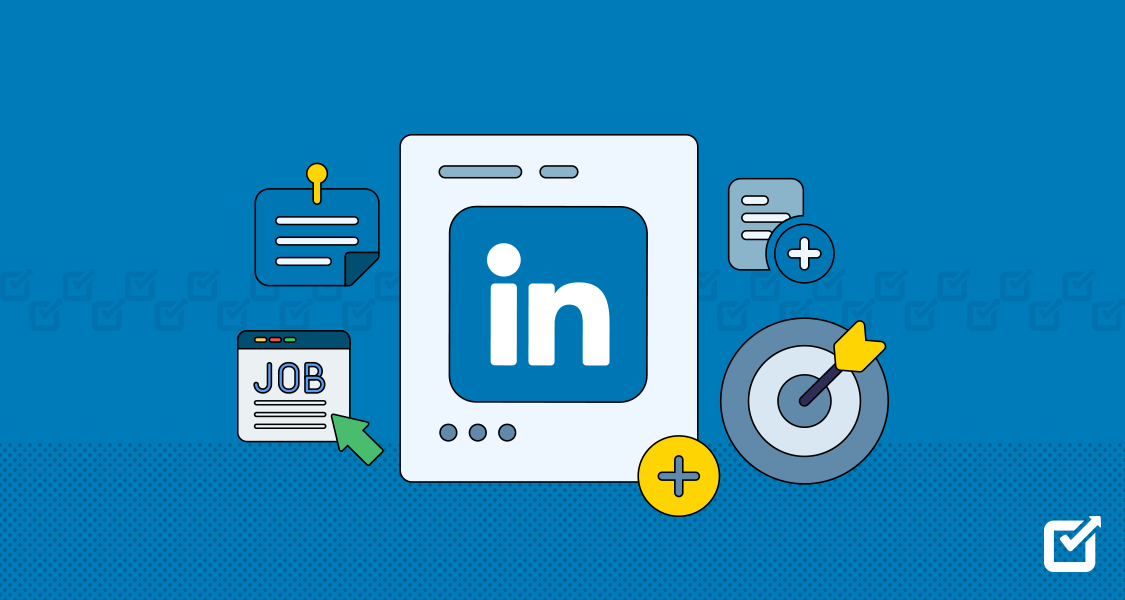In today’s digital age, marketing has evolved far beyond traditional methods. Digital marketing has become a critical component of business strategy, enabling companies to reach a global audience, engage with customers in real-time, and measure the effectiveness of their campaigns. Whether you’re a small business owner or a seasoned marketer, understanding the fundamentals of digital marketing is essential for driving growth and staying competitive. In this blog post, we’ll explore the key strategies and tools that can help you succeed in the ever-changing world of digital marketing.
Understanding Digital Marketing
Digital marketing refers to all marketing efforts that use an electronic device or the internet. It encompasses a wide range of strategies and tactics, including search engine optimization (SEO), content marketing, social media marketing, email marketing, and online advertising. The primary goal of digital marketing is to connect with your target audience where they spend their time—online. By leveraging various digital channels, businesses can build brand awareness, generate leads, and convert prospects into customers.
The Importance of SEO
Search Engine Optimization (SEO) is the foundation of any successful digital marketing strategy. SEO involves optimizing your website and content to rank higher in search engine results pages (SERPs). The higher your site ranks, the more visible it becomes to potential customers. SEO includes both on-page and off-page techniques, such as keyword optimization, meta tags, link building, and content creation. By improving your SEO, you can increase organic traffic to your site and establish your brand as an authority in your industry.

Content Marketing: Building Trust and Authority
Content marketing is all about creating valuable, relevant, and consistent content to attract and engage your target audience. This content can take many forms, including blog posts, videos, infographics, podcasts, and ebooks. The key to successful content marketing is understanding your audience’s needs and providing solutions through your content. By offering valuable information, you can build trust with your audience, position your brand as an industry leader, and drive conversions.
Social Media Marketing: Engaging with Your Audience
Media marketing involves using social platforms like Facebook, Instagram, Twitter, LinkedIn. Also, use Pinterest to promote your brand and connect with your audience. Social media is a powerful tool for building brand awareness, fostering community, and driving traffic to your website. To succeed in social media marketing, it’s important to create a consistent posting schedule, share engaging content, and interact with your followers. Paid advertising on social media platforms can also help you reach a larger audience and achieve specific marketing objectives.
Email Marketing: Personalizing Your Approach
Email marketing remains one of the most effective digital marketing channels for nurturing leads and driving conversions. By building an email list, you can deliver personalized messages directly to your audience’s inbox. Successful email marketing campaigns focus on providing value, whether through educational content, special offers, or product recommendations. Segmenting your email list based on user behavior and preferences allows you to tailor your messages for better engagement and results.
Pay-Per-Click (PPC) Advertising: Targeting the Right Audience
Pay-per-click (PPC) advertising is a method of driving traffic to your website by paying a fee each time someone clicks on your ad. Google Ads is one of the most popular PPC platforms. Also, allowing you to bid on keywords that your target audience is searching for. PPC offers precise targeting options, enabling you to reach specific demographics, locations, and devices. By carefully managing your campaigns and optimizing your ads, PPC can provide a high return on investment (ROI) and help you achieve your marketing goals.
Exploring Geographic Data and Insights
GeoJason.info provides comprehensive tools and analyses for understanding geographic patterns and spatial data effectively.
For users interested in interactive online platforms alongside educational content, mobile sports book offers an engaging complement.
Integrating such links thoughtfully ensures they align with the site’s focus on data and geography without distraction.
This approach allows visitors to enjoy both geographic insights and interactive online experiences seamlessly.
Analytics and Data-Driven Decisions
One of the greatest advantages of digital marketing is the ability to track and measure the performance of your campaigns in real-time. Tools like Google Analytics, social media insights. Also, email marketing metrics provide valuable data on how your audience interacts with your content and ads. By analyzing this data, you can make informed decisions, refine your strategies, and improve your ROI. Regularly reviewing your digital marketing efforts ensures that you’re on track to meet your objectives and allows you to adapt to changing market conditions.
The Role of Automation in Digital Marketing
Marketing automation is the use of software to automate repetitive marketing tasks, such as email campaigns, social media posting, and lead generation. Automation allows you to streamline your marketing efforts, save time, and provide a more personalized experience for your audience. For example, you can use automation to send targeted emails based on user behavior or schedule social media posts in advance. By leveraging automation, you can scale your marketing efforts and focus on more strategic activities.
Staying Ahead with Emerging Trends
The digital marketing landscape is constantly evolving, with new tools, technologies, and trends emerging regularly. To stay ahead of the competition, it’s important to keep up with these changes and be willing to experiment with new strategies. Some of the emerging trends in digital marketing include artificial intelligence (AI), voice search optimization, video marketing, and interactive content. By staying informed and adapting your approach, you can continue to engage your audience and achieve your marketing goals.
Conclusion
Digital marketing offers a wealth of opportunities for businesses to connect with their audience, build brand loyalty, and drive growth. By understanding the key strategies, such as SEO, content marketing, social media, email marketing. Also, PPC, you can create a comprehensive digital marketing plan that delivers results. Remember to track your performance, use data to inform your decisions, and stay adaptable in the face of new trends. With the right approach, digital marketing can be a powerful tool for achieving long-term success.











